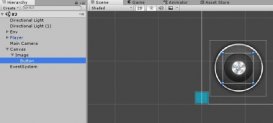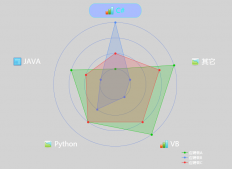一、引言
在软件系统中,当创建一个类的实例的过程很昂贵或很复杂,并且我们需要创建多个这样类的实例时,如果我们用new操作符去创建这样的类实例,这未免会增加创建类的复杂度和耗费更多的内存空间,因为这样在内存中分配了多个一样的类实例对象,然后如果采用工厂模式来创建这样的系统的话,随着产品类的不断增加,导致子类的数量不断增多,反而增加了系统复杂程度,所以在这里使用工厂模式来封装类创建过程并不合适,然而原型模式可以很好地解决这个问题,因为每个类实例都是相同的,当我们需要多个相同的类实例时,没必要每次都使用new运算符去创建相同的类实例对象,此时我们一般思路就是想——只创建一个类实例对象,如果后面需要更多这样的实例,可以通过对原来对象拷贝一份来完成创建,这样在内存中不需要创建多个相同的类实例,从而减少内存的消耗和达到类实例的复用。 然而这个思路正是原型模式的实现方式。下面就具体介绍下设计模式中的原型设计模式。
二、原型模式的详细介绍
我们来看一个入学考试场景实例
基对象(一般为接口,抽象类):考试题(样卷)
原型模式的复职克隆:根据需要印刷考卷,这里的考卷都是复制考试题样卷
客户端:学生答卷,同一套试卷,学生做题不可能一模一样
类图:

接口:试卷样例代码
|
1
2
3
4
5
6
7
8
9
10
11
12
13
14
15
16
17
18
19
20
21
22
23
24
25
26
27
28
29
30
31
32
33
34
35
36
37
38
39
40
41
42
43
44
45
46
47
48
49
50
51
52
53
54
55
56
57
58
|
/// <summary>/// 选答题/// </summary>public class SelectTest{ private string other; public string 你老婆多大 { get { return this.other; } set { this.other = value; } }}/// <summary>/// 面试题/// </summary>public interface Itest{ Itest Clone(); string 知道设计模式吗 { get; set; } string 设计模式有几种 { get; set; } string 你知道那些 { get; set; } SelectTest 附加题 { get; set; } Test Test { get; set; } Test Test1 { get; set; }} |
复制克隆:复印机
|
1
2
3
4
5
6
7
8
9
10
11
12
13
14
15
16
17
18
19
20
21
22
23
24
25
26
27
28
29
30
31
32
33
34
35
36
37
38
39
40
41
42
43
44
45
46
47
48
49
50
51
52
53
54
55
56
57
58
59
60
61
62
|
/// <summary> /// 继承Itest接口 /// </summary> public class Test : Itest { private string one; private string two; private string three; private SelectTest other=new SelectTest(); public string 知道设计模式吗 { get { return this.one; } set { this.one = value; } } public string 设计模式有几种 { get { return this.two; } set { this.two = value; } } public string 你知道那些 { get { return this.three; } set { this.three = value; } } public SelectTest 附加题 { get { return this.other; } set { this.other = value; } } #region IColorDemo 成员 public Itest Clone() { //克隆当前类 return (Itest)this.MemberwiseClone(); } #endregion } |
客户端,发卷做题
|
1
2
3
4
5
6
7
8
9
10
11
12
13
14
15
16
17
18
19
20
21
22
23
|
static void Main() { //印刷试卷 Itest test = new Test(); //复制样本试卷 Itest test1 = test.Clone(); //考生1 test.设计模式有几种 = "23"; test.附加题.你老婆多大 = "18"; //考生2 test1.设计模式有几种 = "24"; test1.附加题.你老婆多大 = "20"; //显示考生答卷内容 Console.WriteLine("test设计模式有几种:" + test.设计模式有几种); //23 Console.WriteLine("test附加题.你老婆多大:" + test.附加题.你老婆多大); //20 Console.WriteLine("test1设计模式有几种:" + test1.设计模式有几种); //24 Console.WriteLine("test1附加题.你老婆多大:" + test1.附加题.你老婆多大); //20 Console.ReadKey(); } |
注意:这里两个人答得不一样,为什么附加题中,老婆年龄都为20?
这里涉及到深拷贝,浅拷贝问题,值类型是放在栈上的,拷贝之后,会自会在站上重新add一个,而class属于引用类型,拷贝之后,栈上重新分配啦一个指针,可指针却指向同一个位置的资源。浅拷贝,只拷贝值类型,深拷贝,引用类型也拷贝复制。
解决方案:
|
1
2
3
4
5
6
7
8
9
10
|
public Itest Clone() { //克隆当前类 Itest itst= (Itest)this.MemberwiseClone(); SelectTest st = new SelectTest(); st.你老婆多大 = this.other.你老婆多大; itst.附加题 = st; return itst; } |
使用序列化解决
|
1
2
3
4
5
6
7
8
9
10
11
12
13
14
15
16
17
18
19
20
21
22
23
24
25
26
27
28
29
30
31
32
33
34
35
36
37
38
39
40
41
42
43
44
45
46
47
48
49
50
51
52
53
54
55
56
57
58
59
60
61
62
63
64
65
66
67
68
69
70
71
72
73
74
75
76
77
78
79
80
81
82
83
84
85
86
87
88
89
90
91
92
93
94
95
96
97
98
99
100
101
102
103
104
105
106
107
108
109
110
111
112
113
114
115
116
117
118
119
120
121
122
123
124
125
126
127
128
129
130
131
132
133
134
135
136
137
138
139
140
141
142
143
|
/// <summary> /// 选答题 /// </summary> [Serializable] public class SelectTest { private string other; public string 你老婆多大 { get { return this.other; } set { this.other = value; } } } /// <summary> /// 面试题 /// </summary> public interface Itest { Itest Clone(); string 知道设计模式吗 { get; set; } string 设计模式有几种 { get; set; } string 你知道那些 { get; set; } SelectTest 附加题 { get; set; } } /// <summary> /// 继承Itest接口 /// </summary> public class Test : Itest { private string one; private string two; private string three; private SelectTest other=new SelectTest(); public string 知道设计模式吗 { get { return this.one; } set { this.one = value; } } public string 设计模式有几种 { get { return this.two; } set { this.two = value; } } public string 你知道那些 { get { return this.three; } set { this.three = value; } } public SelectTest 附加题 { get { return this.other; } set { this.other = value; } } public Itest Clone() { SerializableHelper SerializableHelper = new 原型模式.SerializableHelper(); string target = SerializableHelper.Serializable(this); return SerializableHelper.Derializable<Itest>(target); } } public class SerializableHelper { public string Serializable(object target) { using (MemoryStream stream = new MemoryStream()) { new BinaryFormatter().Serialize(stream, target); return Convert.ToBase64String(stream.ToArray()); } } public object Derializable(string target) { byte[] targetArray = Convert.FromBase64String(target); using (MemoryStream stream = new MemoryStream(targetArray)) { return new BinaryFormatter().Deserialize(stream); } } public T Derializable<T>(string target) { return (T)Derializable(target); } } |
这就是对原型模式的运用。介绍完原型模式的实现代码之后,下面看下原型模式的类图,通过类图来理清原型模式实现中类之间的关系。具体类图如下:

三、原型模式的优缺点
原型模式的优点有:
原型模式向客户隐藏了创建新实例的复杂性
原型模式允许动态增加或较少产品类。
原型模式简化了实例的创建结构,工厂方法模式需要有一个与产品类等级结构相同的等级结构,而原型模式不需要这样。
产品类不需要事先确定产品的等级结构,因为原型模式适用于任何的等级结构
原型模式的缺点有:
每个类必须配备一个克隆方法
配备克隆方法需要对类的功能进行通盘考虑,这对于全新的类不是很难,但对于已有的类不一定很容易,特别当一个类引用不支持串行化的间接对象,或者引用含有循环结构的时候。
四、.NET中原型模式的实现
在.NET中可以很容易地通过实现ICloneable接口(这个接口就是原型,提供克隆方法,相当于与上面代码中MonkeyKingPrototype抽象类)中Clone()方法来实现原型模式,如果我们想我们自定义的类具有克隆的功能,首先定义类继承与ICloneable接口并实现Clone方法。在.NET中实现了原型模式的类如下图所示(图中只截取了部分,可以用Reflector反编译工具进行查看):



















